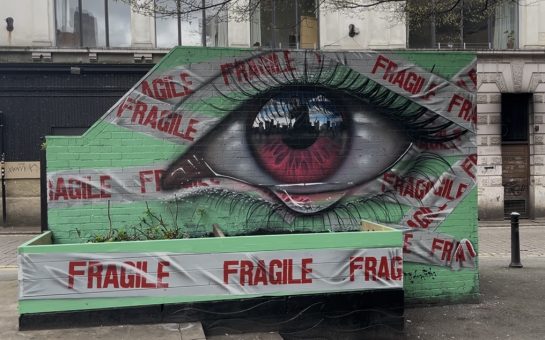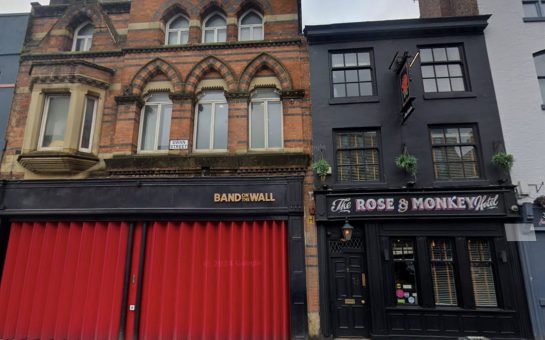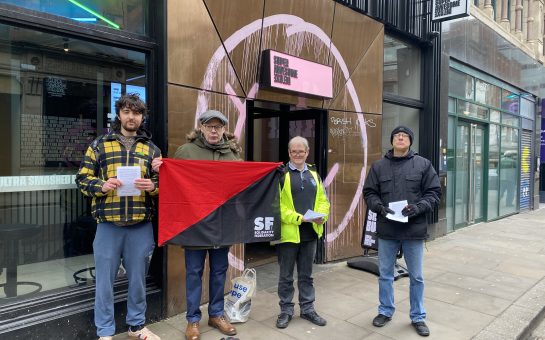For the first time since World War II, the Chelsea Flower Show is cancelled.
Instead, on each day it was supposed to be scheduled, a prominent gardening personality will give a virtual tour of their private gardens – for viewing only from the isolation of your own.
This year’s absence of the pageantry found in the Queen’s favourite outing has since revealed itself to be trivial in light of the country’s and the world’s devastating situation.
Flowers are not insignificant in the battle, though. Covid-19 has left the fate of the workforce in unprecedented territory, and one field that is facing new challenges as a result is floristry.
“The amazing thing about the industry is that it’s the only industry that deals with every emotion,” says David Bolton, Head of Sales at Florismart in the UK.
“We like to say we don’t sell flowers, we sell emotions.”
Florismart is a community of growers and florists operating to support local businesses and bring their flowers to the people. Its website acts as a redirectory guide to the florists themselves, allowing for the very person who has lovingly crafted your bouquet by hand to keep 100% of the revenue.
The independent florists working within the company are self-driven and supremely skilled, allowing for high-quality arrangements that were not just thrown together in a factory to reach customers.
But in the midst of the biggest shutdown in living memory, these customers can longer enter floristry shops to handpick their arrangements. Now, home deliveries are the default and only option.
“As far as we’re concerned at Florismart, we will continue to deliver while the borders remain open and the government allows us to,” says David.
“We will be delivering fresh flowers to all the florists that need them.”
During the lockdown, flowers heaped in buckets are continuing to line the entrance doors of supermarkets, which remain open as essential trade. Despite their dominance in being the only place to buy flowers in person, and doing so cheaply at that, David wishes for shoppers to put their faith in their local vendors.
“What we hope is that the public are supporting local businesses.
“Obviously the big guys, like supermarkets, have got big pockets and a lot of shops are kind of smaller guys, and haven’t got big deep pockets.
“We are hoping that the public will support what florists are doing. If they thrive, then the local community has benefited because we’re keeping the high street alive.”
When whispers of a lockdown first entered the public consciousness, hysteria of stockpiling toilet roll and penne pasta seemed to erupt more than it did of hoarding roses and orchids. In this period of days indoors and worry, the question is raised of whether buying bouquets will be anywhere but the very back of people’s minds.
David is optimistic that from a floristry point of view, customers will keep coming.
“Birthdays still happen, anniversaries will still happen. There will be less weddings going on in the short term but there are still flowers for every kind of emotion,” he says.
Displaying flowers in the place you now call 24/7 home also has its inherent benefits, he notes.
“At the minute there are so many frightened people out there and there are a lot of lonely people, and flowers are proven to brighten up people’s lives. They’re proven to make people feel better about themselves.”
‘CLUMP TOGETHER’
Beyond the Florismart hub, other floristry networks have similarly taken the approach to close stores.
Interflora has seen its 1200 independent florists shut their doors following government guidelines, but isn’t ending its spread of floral cheer. The company is promising to support the fulfilment of these stores’ online orders and splashed its website with Easter-themed content.
Northern Flower in Manchester has set a shining example of resilience as an independent florist. In lockdown week one, flowers were packed away from its Northern Quarter store and rehomed in a new nursery (owner Lucy’s back room), waiting to be perched on customers’ doorsteps.
The florist’s Instagram echoes David’s belief in the power of the flower.
“I delivered lots of bouquets this week for just that very reason. I think it is important we keep ourselves happy and positive at the moment and if I can help that by offering a fresh flower or plant delivery, safely, following all government guidelines, then I’m going to do it,” reads a caption of a leafy photographic update on the displacement.
Sadly, for some the circumstances have led to the hard decision not to operate via even the web.
Bouquets from Manchester’s Collins the Florist, whose designs have been carried in the hands of some of Coronation Street’s most blushing brides, can no longer be purchased in store or online. An exception has been made only for funeral flowers for local services, enquired over the phone.
The city’s florist community sticks out as a point of admiration for David, who lived locally for several years.
“We have some of the best florists that are in the country in the North West. Siân (of The Flower Lounge, Didsbury) is one of the top wedding florists in the country.”
But it’s not just the leading floristry skills that puts the region ahead.
“Manchester people and the North West are very strong and determined to look after their businesses that they have around them,” David observes.
“We do tend to clump together and support each other.”
In this time of uncertainty, a little comfort may be found in the brighter things in life. These brighter things are still there for us in the shape of flowers, beautifully hand-crafted by a vast workforce working tirelessly behind the scenes to delight customers as normal.
“Florists are the biggest network of delivery vehicles on the road behind the Post Office,” David says.
“There are over 8000 florists and they are out there delivering.”
Image courtesy of Florismartuk via Instagram, with thanks.



